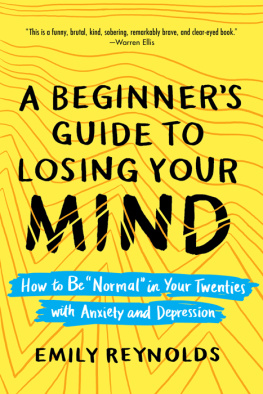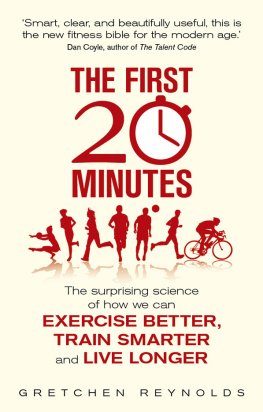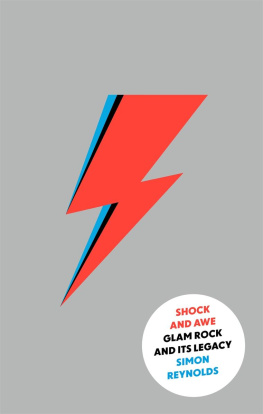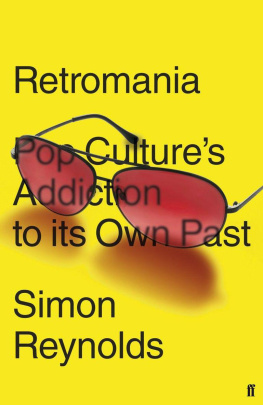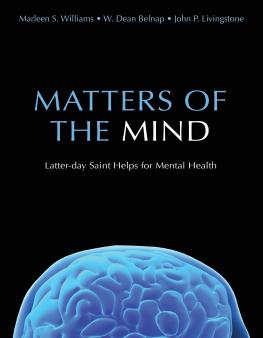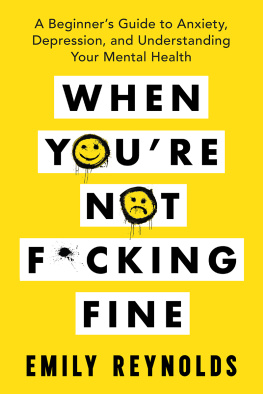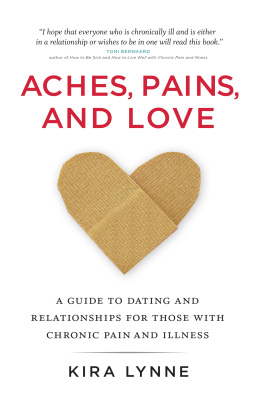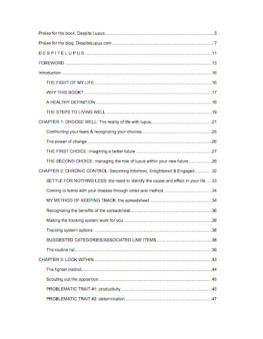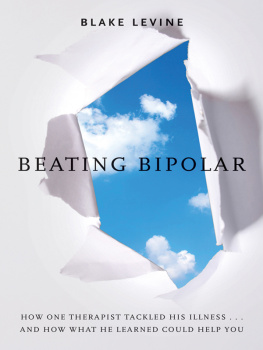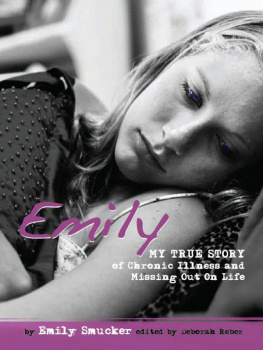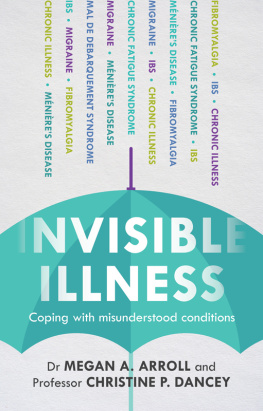Copyright 2017 by Emily Reynolds
Cover and internal design 2017 by Sourcebooks, Inc.
Cover design by Connie Gabbert
Sourcebooks and the colophon are registered trademarks of Sourcebooks, Inc.
All rights reserved. No part of this book may be reproduced in any form or by any electronic or mechanical means including information storage and retrieval systemsexcept in the case of brief quotations embodied in critical articles or reviewswithout permission in writing from its publisher, Sourcebooks, Inc.
This publication is designed to provide accurate and authoritative information in regard to the subject matter covered. It is sold with the understanding that the publisher is not engaged in rendering legal, accounting, or other professional service. If legal advice or other expert assistance is required, the services of a competent professional person should be sought. From a Declaration of Principles Jointly Adopted by a Committee of the American Bar Association and a Committee of Publishers and Associations
This book is not intended as a substitute for medical advice from a qualified physician. The intent of this book is to provide accurate general information in regard to the subject matter covered. If medical advice or other expert help is needed, the services of an appropriate medical professional should be sought.
All brand names and product names used in this book are trademarks, registered trademarks, or trade names of their respective holders. Sourcebooks, Inc., is not associated with any product or vendor in this book.
Published by Sourcebooks, Inc.
P.O. Box 4410, Naperville, Illinois 60567-4410
(630) 961-3900
Fax: (630) 961-2168
www.sourcebooks.com
Originally published in 2017 in the United Kingdom by Yellow Kite, an imprint of Hodder & Stoughton Limited.
Library of Congress Cataloging-in-Publication Data
Names: Reynolds, Emily (Writer/broadcaster), author.
Title: A beginners guide to losing your mind : how to be normal in your twenties with anxiety and depression / Emily Reynolds.
Description: Naperville, Illinois : Sourcebooks, [2017]
Identifiers: LCCN 2016053262 | (pbk. : alk. paper)
Subjects: LCSH: Anxiety--Popular works. | Anxiety--Treatment--Popular works. | Depression, Mental--Popular works. | Depression, Mental--Treatment--Popular works.
Classification: LCC RC531 .R48 2017 | DDC 616.85/22--dc23 LC record available at https://lccn.loc.gov/2016053262
TABLE OF CONTENTS
INTRODUCTION
BEING DIAGNOSED WITH BIPOLAR DISORDER was the happiest moment of my life. Forget falling in love, graduation, the birth of my nephewall that schmaltzy, saccharine stuff pales in comparison to hearing the words You have bipolar disorder type 1. Meeting the love of your life? Not a big deal, really. Throwing your graduation cap in the air as the symbolic climax of four years of intellectual challenge and growth? Whatever. Sitting in a boxy, gray office as a psychiatrist tells you that, yes, you do have a chronic mental illness? Now THATS what Im talking about.
Im being flippant, but its really not much of an exaggeration. My road to diagnosis was long and hard, peppered with hours of numb staring in indistinguishable waiting rooms, and it was ten years between the first signs of mental illness and an eventual diagnosis. Ten years of psychiatrists and general practitioners and badly trained counselors, ten years of misdiagnosis and medication that made me sick or fat or even more ill. I can reel off the names of the pills Ive takenSSRIs and MAOIs and tricyclic antidepressants and atypical antipsychoticslike a child drably reciting the periodic table by rote. Ive been diagnosed with major depression, borderline personality disorder, bipolar disorder type 1, and a good smattering of youll probably feel better in a few weeks. Ive accepted, rejected, then finally accepted my status as someone with mental health problems. Its been a journey in the sense that it has been a grueling physical challenge, and also in the American Idol sob story sense. So, while it might just be the beauty of narrative hindsight, the day I was diagnosed felt like a culmination of all of these elements.
I first experienced mental health problems when I was around thirteen or fourteen years old. They seemed to come on unprompted, and at first I couldnt really put my finger on what was wrong or how I was even feeling. Groggy, a lot of the time, with a lack of concentration that I put down to regular disinterest in school and my peers. Then I started to get dizzyso much so that I felt as if I was floating outside of my own body, unable to cling onto any of my sensory abilities whatsoever. (I later learned that this is whats referred to clinically as dissociation a detachment from physical and emotional surroundings.) I would gaze out of the window on the bus home, looking at houses and shops fly past but not being able to connect the images to anything I could even remotely identify as my self.
I was also viciously sad; I would sleep almost constantly and had absolutely no interest in anything, and the only thing that would alleviate the stagnant numbness was an addiction to self-harm that I indulged at home and in the school toilets at lunchtime. I didnt think I could possibly be ill, thoughI didnt even entertain the idea.
The problem partly lay in the fact that many of the symptoms of depression, or bipolar disorder, are similar to traits that are also considered to be ubiquitous in teenagers. The difference was the severity and duration, but thats hard to communicate when youre fifteen, terminally shy, and havent got the language to express what youre feeling, full stop. Id also skimmed the Wikipedia article for Sartre and viewed my malaise as some kind of profound existential statement about the world. It was like the terrible feelings of suffocation were a logical, intellectual choice, a personality trait or a philosophy Id chosen, rather than an illness that had any power over me.
They werent. I was depressed.
I was finally diagnosed, ten years later, during the midst of my worst ever depressive episode. I had dealt badly with a breakup, and days spent crying over my ex had turned into weeks of not getting out of bed, and eventually a few months of almost complete stasis. I barely ate, I saw nobody, I did nothing but sleep and cry. I actually cried so much that in the end I became physically unable to muster a solitary tear, and it took nearly a year of stable, medicated living before I was able to cry again. Incidentally, I eventually ended up crying over a dog food ad. It wasnt quite the significant cinematic experience I was hoping for, but yknow, Ill take what I can get.
I knew I was ill when I realized that I was no longer even slightly bothered about my breakup. All the sobbing and sleeping and the inability to eat, not knowing whether today would finally be the day I conjured up enough courage to throw myself under a bus, was actually because I was deeply unwell. It kind of sucked, actually, because at least the breakup had been something to focus on. Where was I without it?
You might think that realizing I was ill, understanding the parameters and cycles of depression, would have made it all a lot easier. I was used to the rigmarole of the routine, after all: feeling shitty for a while, going to the doctor and getting some medication, settling down after some nausea and tooth-grinding, and then feeling okay again. But this time it was somehow harder; something inside me was proving such a profound source of resistance that I was absolutely incapable of doing anything.

